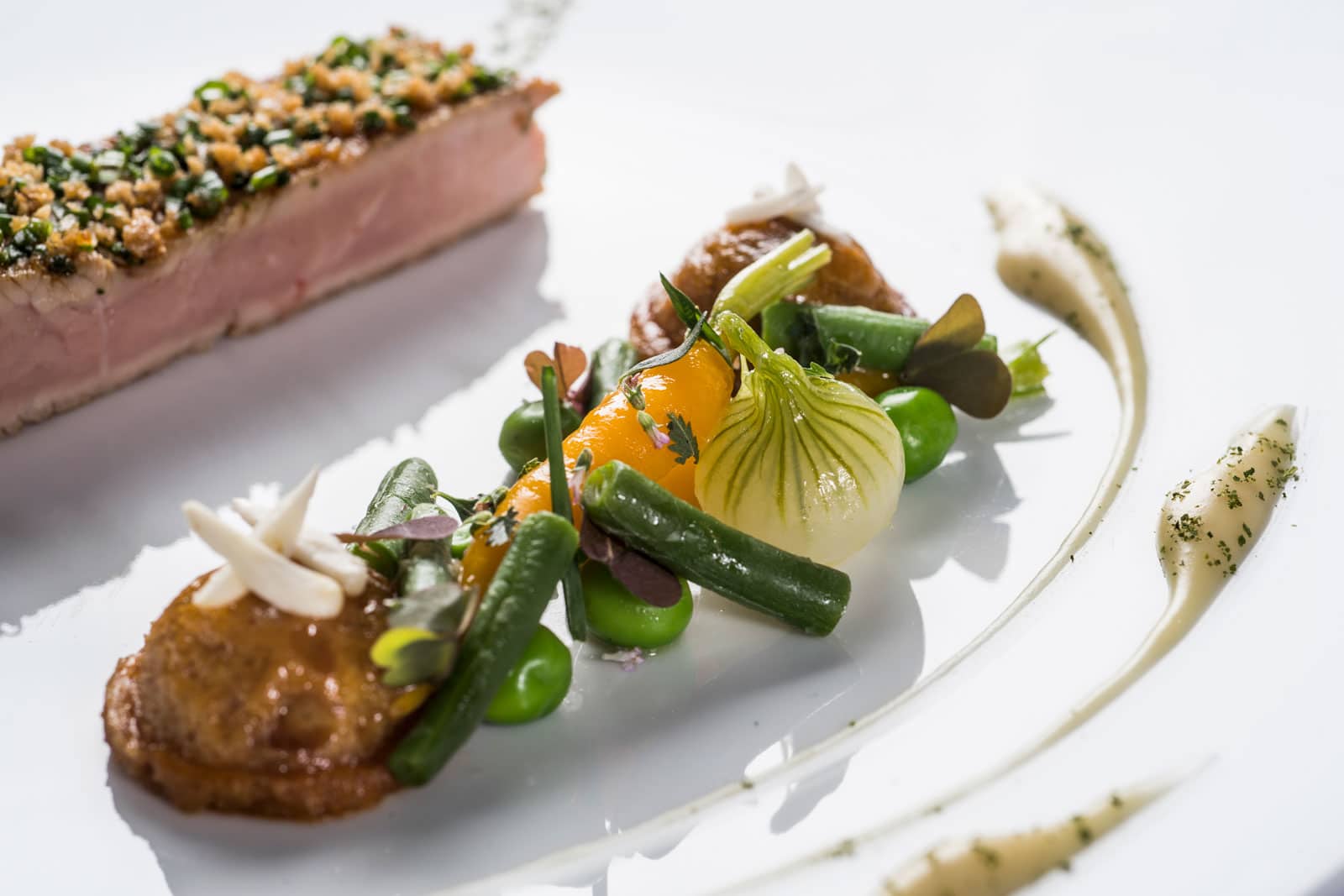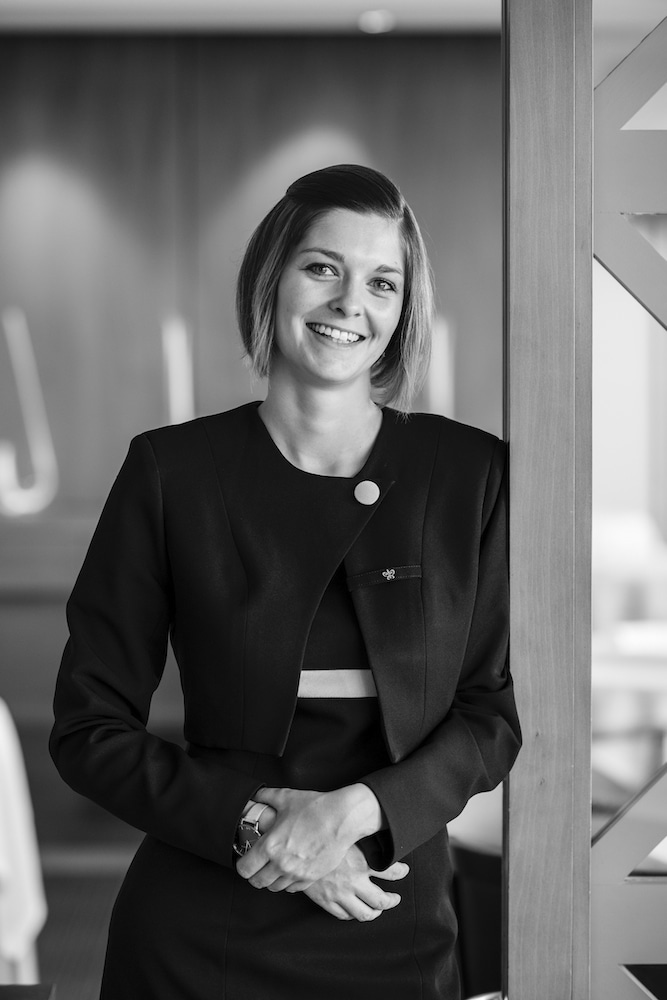Claire Bâcle
«The future of our business? Moving towards more benevolence, towards a more humane approach!»
As a teenager, Claire Bâcle chose the hotel and catering industry to stand up to her parents, an early intuition later confirmed by her years of training: this profession would become a passion.
Discipline, empathy, constant movement – all the ingredients that make up the beating heart of gastronomy – are character traits that perfectly describe the young dining room manager. And it’s those qualities that caught the eye of the industry and the magazine Le Chef, which recently named her Best maître d’hôtel for her work at the Anne de Bretagne restaurant.
Let’s take a look at her brilliant career.
© Anne-Emmanuelle Thion
What made you want to get into this business?
My parents absolutely wanted me to get a general baccalaureate, but I stood up to them and opted for a vocational course… I didn’t grow up in the habit of going out to eat, but I really liked the energy that emanated from restaurants. So that’s the direction I took. Along the way, I discovered a world I truly liked: fast-paced, humane, based on travels and wonderful encounters. I thought it was the right industry for me to blossom in and build an interesting career.
Tell us about your career path.
I discovered the world of starred restaurants during an internship at Château de Germigney, in Jura in 2010. I was quite apprehensive but was quickly put at ease by Chef Pierre Basso Moro and his wonderful team. In fact, it was a revelation.
Claire Bâcle’s path :
-
2010 : Higher National Diploma (brevet de technicien supérieur) internship at the restaurant of Château de Germigney.
-
2012 : One-year vocational degree (licence professionelle) and internship at Hostellerie de Levernois.
-
2014 : Seasonal work at the 1920 restaurant of Chalet du Mont d’Arbois.
-
December 2015 : Assistant maître d’hôtel at the 1920 restaurant of Chalet du Mont d’Arbois.
-
November 2016 : Maître d’hôtel at the Anne de Bretagne restaurant.
-
2019 : Service award from Le Chef magazine.
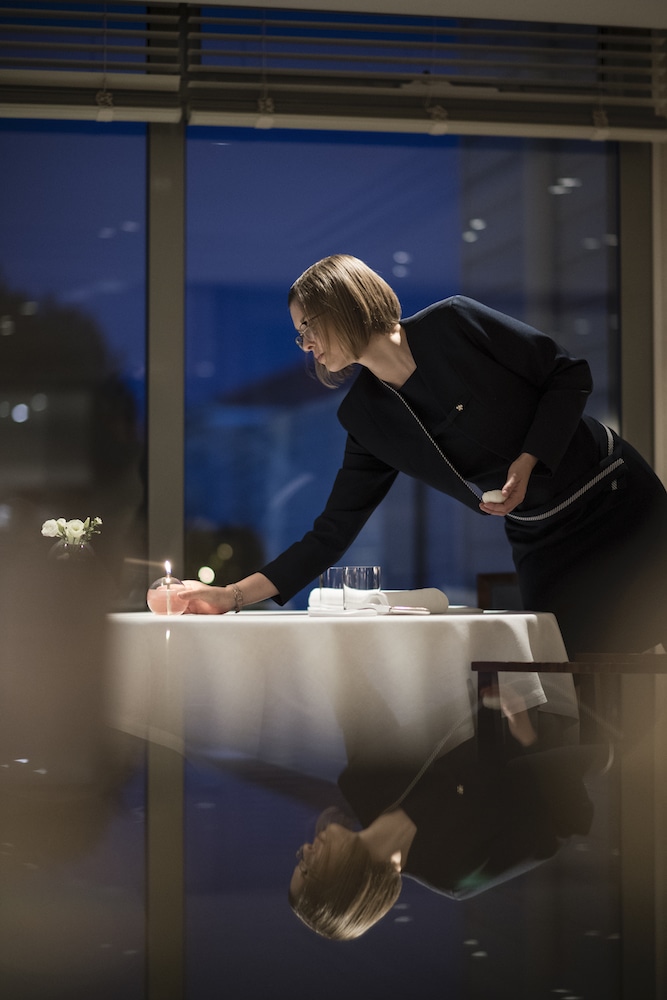
With growing interest, I embarked on a one-year vocational degree (licence professionnelle) in Angers in 2012. During my internship at Hostellerie de Levernois, I met House Masters Mr and Mrs Bottigliero, who made a lasting impression on me with their management skills and kindness.
«Witnessing the kind of relationship they have with their clients and their team made me realise this was indeed what I wanted to do.»
I also came across Bernard Bruyer, the dining room manager who introduced me to new techniques. I was petrified cutting the poultry in the dining room for the first time, but I was quickly swept away by the unwavering culture of discipline and client care. 2014 marked the beginning of new adventures: seasonal work. I joined the 1920 restaurant at Chalet du Mont d’Arbois in Megève, working in a large brigade under the leadership of Olivier Alglave, a model of rigour and professionalism. At the time, he was preparing for the Meilleur Ouvrier de France competition and I witnessed the excitement and satisfaction this gave him. At his side, I trained in a new range of dining room cuts: sole, turbot, saddle of lamb, etc. for a more international, sometimes more demanding clientele. It was a challenge, particularly because it was my first time as headwaiter. At the end of 2015, Olivier offered me the position of assistant maître d’hôtel: I was a bit nervous but also flattered that he put his trust in me.
«I learned a lot during the first season… especially from my mistakes! In my second year, I realised how much I loved this job: I loved managing, being in contact with people and I was growing more and more comfortable.»
I realised that I can get involved in decision-making, defend my ideas and truly take part in the business’ evolution. In November 2016, I met Chef Mathieu Guibert for a position as assistant maître d’hôtel at Anne de Bretagne. I simply fell in love with this venue facing the ocean and the Loire estuary, but also with the chef’s benevolent philosophy, his desire to give everyone a chance, to all work together and enjoy it. Only issue, he was looking for a maître d’hôtel rather than an assistant. I let him know I hadn’t yet mastered all the required skills, but that I was willing to try if he were to help me along the way. It turns out we were a good match because it was his first time too, both as a chef and as a business leader! So we jumped into this experience together, bringing along Adrien Lavorel, our sommelier.
You grew up in a family of farmers, a profession closely intertwined with nature and its produces, but also with humans; did your background influence your practice?
It certainly did have an influence on me. I was lucky enough to grow up in the countryside, and it’s something I still value very much. The proximity with the ocean, its untamed wilderness are some of the aspects that most appealed to me at Anne de Bretagne. And behind every produce we use in the kitchen, there is a man or a woman. We make it a point to go and meet them, with our teams, to discover and learn more about their work; this helps us better understand the meaning of what we serve our clients.
Another strong influence is my relationship to exertion. My parents have always shown full commitment to their farm, so hard work has never been a thing that scared me. Quite the opposite in fact. I couldn’t see myself doing it any other way, and I always thought I needed a job that would require complete dedication. This is a value I have often shared with the people I work with, like Chef Mathieu Guibert, who also grew up in a farm.
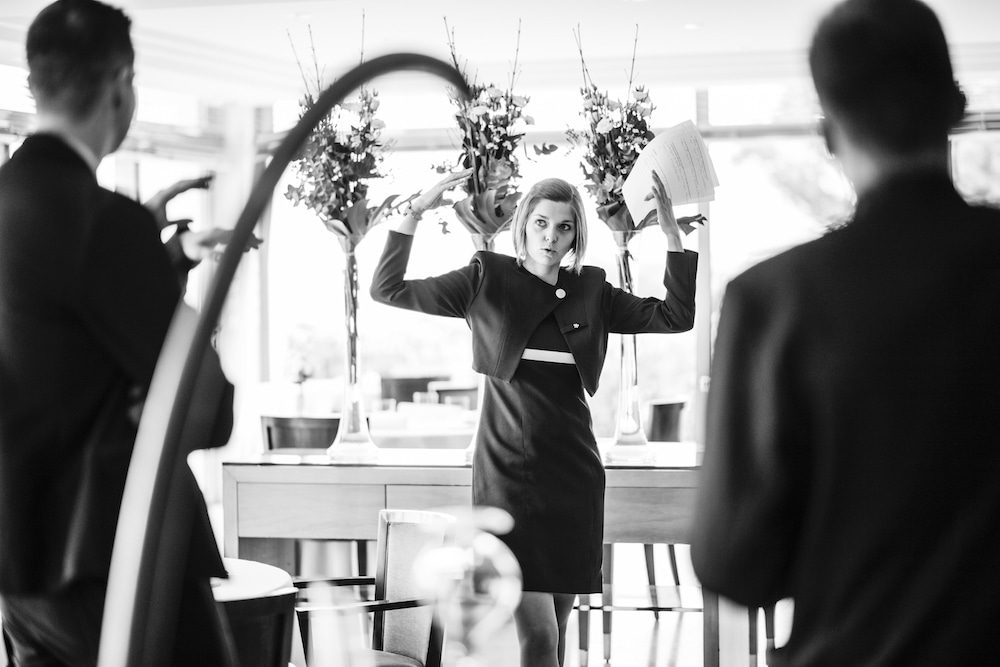
What is, in your opinion, the most important trait to blossom in this industry?
The most important thing is to love what you do, because these are very demanding professions.
«You have to get up every morning with enthusiasm and enjoy human contact. We are not machines, we all feel differently, so it’s important to listen: to yourself, to your clients and to the members of your team.»
My job doesn’t require me to stay until the end of the service, but my passion leads me to do so. It’s essential to have boundaries between your job, your passion and your personal life, and each must have its place. It’s something I witnessed with my parents: if you don’t set limits, you end up working endlessly. I think that’s why our jobs were shunned, because of the intense hours. But things are changing, especially because my generation is increasingly demanding better balance.
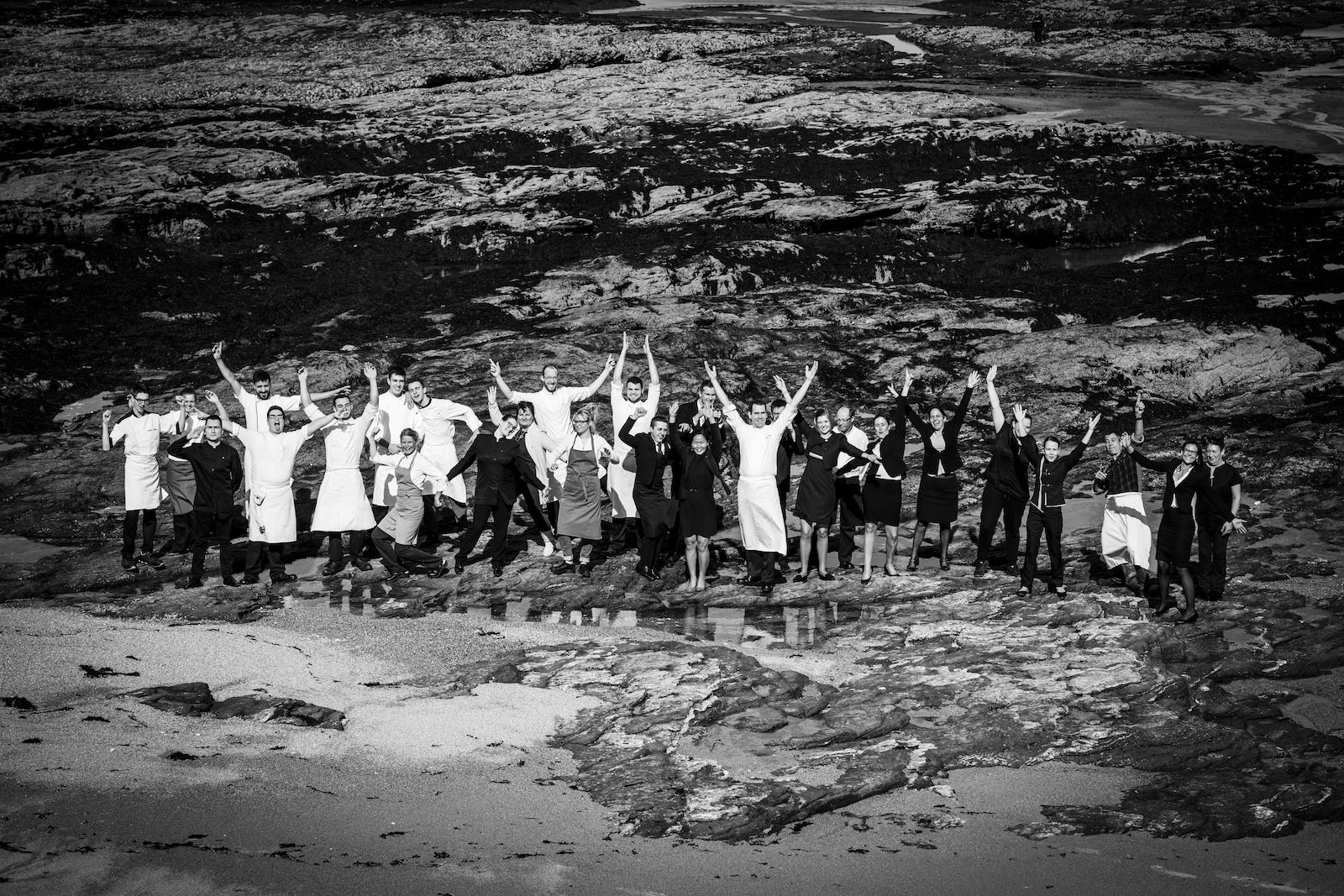
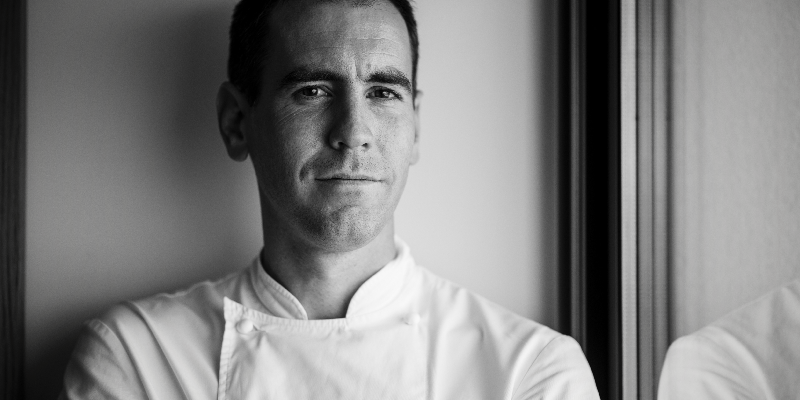
Can you tell us about your greatest challenges?
I would say the first was in Megève, when I took over as assistant maître d’hôtel. I had to be extremely demanding with myself, and serve as an example to my team because you simply can’t give up for their sake. Another huge challenge for me was when I joined Anne de Bretagne, in a position I had never held before. I was expected to commit myself fully, which was exciting of course, but I was also anxious I might disappoint, or not be a good fit. I’ve worked here for three years now, and yet sometimes, I still have doubts. But, with time, you learn to trust each other, to bounce higher and higher, faster and faster.
And your greatest pride?
Indulging our clients. I’m so happy when they praise the service, when I feel that the whole team is enjoying it too. There’s also the pride I see in the eyes of my parents, my family! When I told them I was going to work in the restaurant business, they didn’t understand how you could blossom in this industry. So when I see them coming to the restaurant today, filled with wonder, understanding that it is a rich and exciting place, or when I see my dad carefully collecting all the articles about my award, it’s such a powerful emotion. And of course, it was a great joy to even be nominated for the award from Le Chef magazine, so winning it… I couldn’t believe it!!
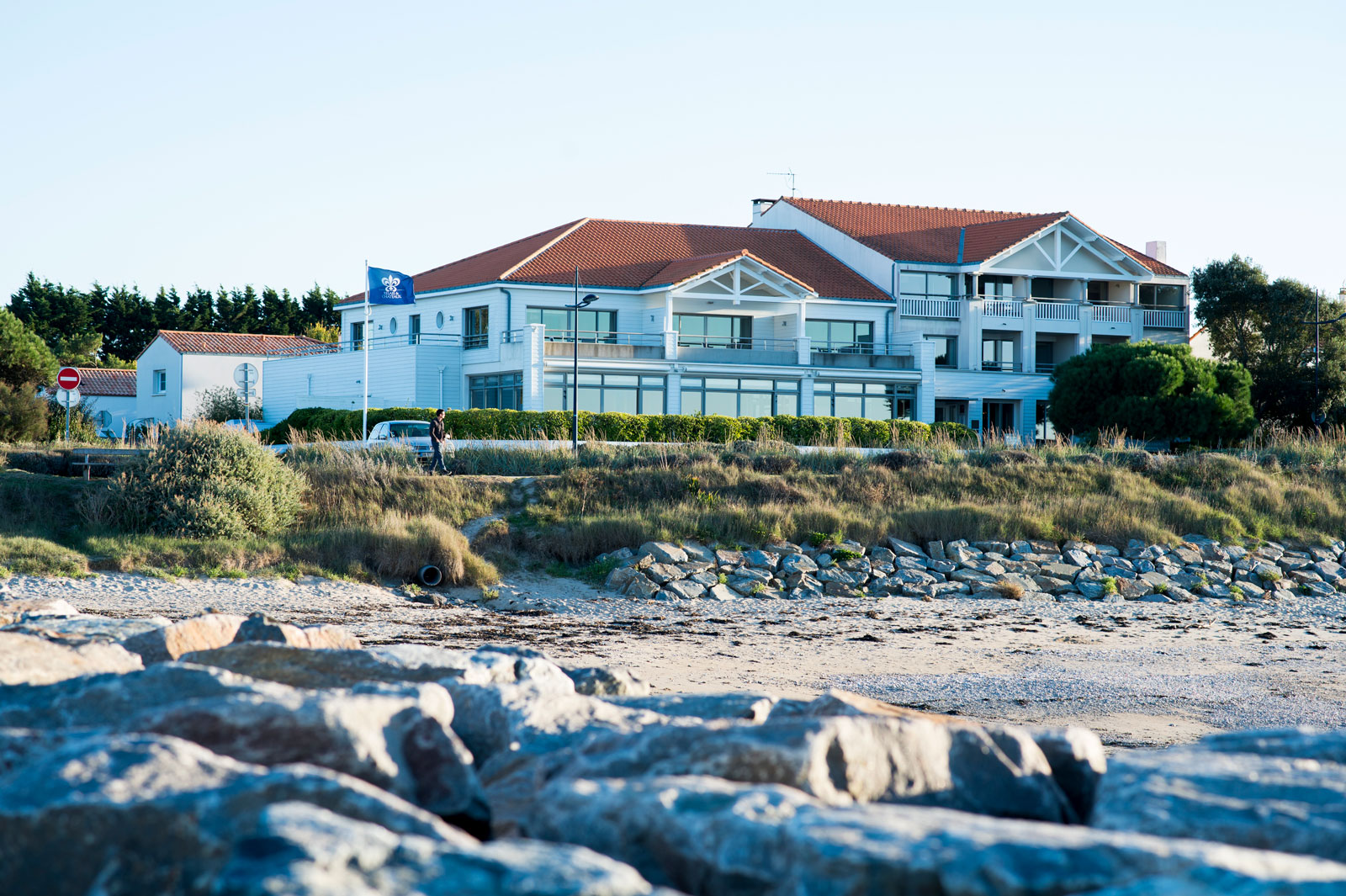
What are the ingredients for being a good maître d’hôtel?
Great patience, listening and of course discipline. I feel as though, based on my short three-year experience, you’re the driving force behind the team. It’s up to us to motivate everyone, to initiate new projects, to find what can bring everyone to evolve, and that’s what makes the team, and therefore the clients, happy. You also need a great deal of empathy: the first few minutes with a client are the most important!
What do you expect from your team?
Commitment and motivation. I prefer working with someone who doesn’t yet know everything but is eager to learn. And of course the right attitude is essential, particularly being kind and benevolent.
The place of women in the catering industry is now being revalued, a sign of necessary change in mentalities on this matter. What do you think about this?
I’ve never encountered any issue in my career, but I’m happy to see that mentalities are in fact changing. Equity in a team is ideal; everyone can bring their strengths to the table, as it is the case here.
What do you see as future challenges for the industry?
The future of our business? Moving towards more benevolence, towards a more humane approach! Recruitment in the restaurant business is a major challenge, we must adapt to the needs of new generations; it is up to us to create roles that best meet their expectations.
«I think we also need to break down certain barriers, get closer to our clients, create a friendly environment, and make gastronomic restaurants more accessible, more caring. Businesses like ours must open up to others. At Anne de Bretagne, for example, we work with schools and organise activities to show that the world of gastronomy and its professions are open to anyone! That’s how you create new vocations!»
